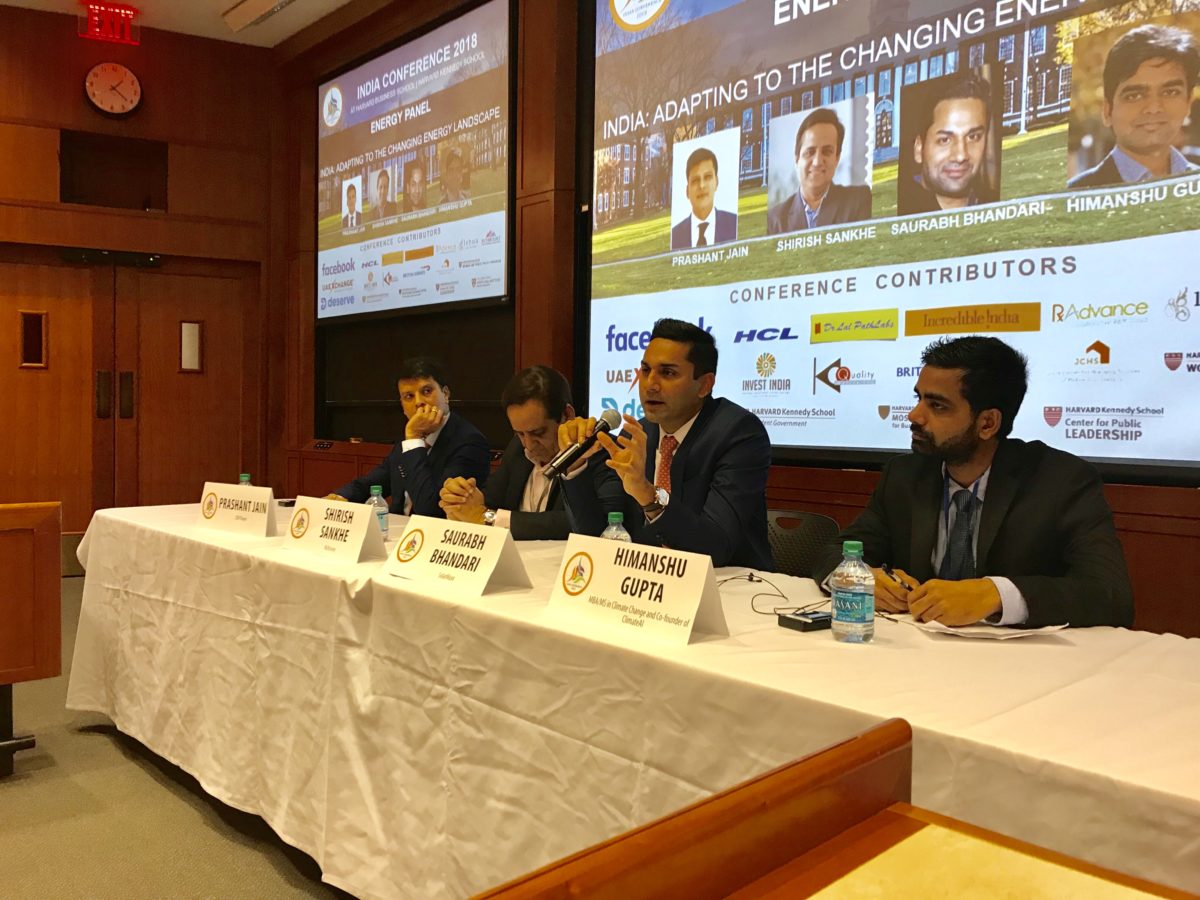The India Conference is one of the largest student-run conferences focusing on India in the USA. It is hosted at the Harvard Business School and Harvard Kennedy School by the graduate students of Harvard University.
The conference brings together business leaders, entertainment professionals, government officials, philanthropists, and many other leaders to engage in a conversation about India’s path to global leadership.
Saurabh Bhandari, Founder CEO of SolarMaxx was invited as a speaker at the India Conference 2018 in Boston, Massachusetts this February. Saurabh, who hails from Jaipur, addressed a panel discussion on “India – Adapting to the changing energy landscape”.
Saurabh spoke about the disruption the Indian entrepreneurs and startups brought about in the Indian energy space with a focus on renewables. India has already achieved 20GW of installed solar power capacity in the country and is on its way to reach an ambitious but much needed target of 100GW by 2022.
The Energy panel also consisted of Prashant Jain, joint managing director JSW Power who informed the necessity of upgrading the existing energy infrastructure to accommodate increasing growth of Renewables and especially for smooth introduction of Electric Vehicle that his company is eagerly looking at launching in the next few years.
Shirish Sankhe, partner McKinsey India was also part of the panel and provided an overview of the current power scenario in India. He informed that though India is quickly adaption to renewables, it is important to focus on energy efficiency too as the existing coal plants in India are amongst the most inefficient in the world. T&D losses of electricity in India are an average of 26% which is amongst the highest in the world and measures must be taken to bring this down to less than 15%.
Bhandari also said that the Indian energy sector is witnessing transformation and disruption simultaneously. Accomplishing a comprehensive vision for the sector requires thorough planning, sector re-organization, creating enabling policies and regulations and every stakeholders’ needs to be prepared for such a transformation.
The main challenge facing India’s energy sector is to increase and improve the delivery of energy services to various sections of the citizenry and the economy in an environmentally and socially acceptable manner. New and improved technologies along with digitization will play a central role in meeting this challenge and from a long-term perspective, it will be in India’s benefit to strengthen the technological capabilities that can help it meet its energy and environmental goals. Indian ER&D institutions and their activities are characterized by the dominance of the public sector in most areas, although some private firms also have sizable R&D efforts.
The size (in absolute terms) and intensity (R&D normalized by sales) of ER&D efforts across the board are much smaller than in industrialized countries. There is also a remarkable imbalance between the pattern of energy supply/use and of ER&D spending: for example, biomass and coal, the mainstays of the Indian energy system, receive disproportionately little attention. While the government has been preoccupied with reforming the energy sector, the historical lack of focus on ER&D (that partly results from the division of various aspects of energy amongst various ministries) has continued in recent years.
The lack of policy attention to this issue also results in the absence of any strategic plan for technology development in relation to the challenges facing India’s energy sector. Given all this, a substantial and concerted effort will be required to appropriately reorient and strengthen India’s ER&D capabilities to meet the energy and environmental challenges facing the country. Bhandari said, the Indian energy sector does have a bright future considering the ongoing industry trends and ample of sunshine we get!






